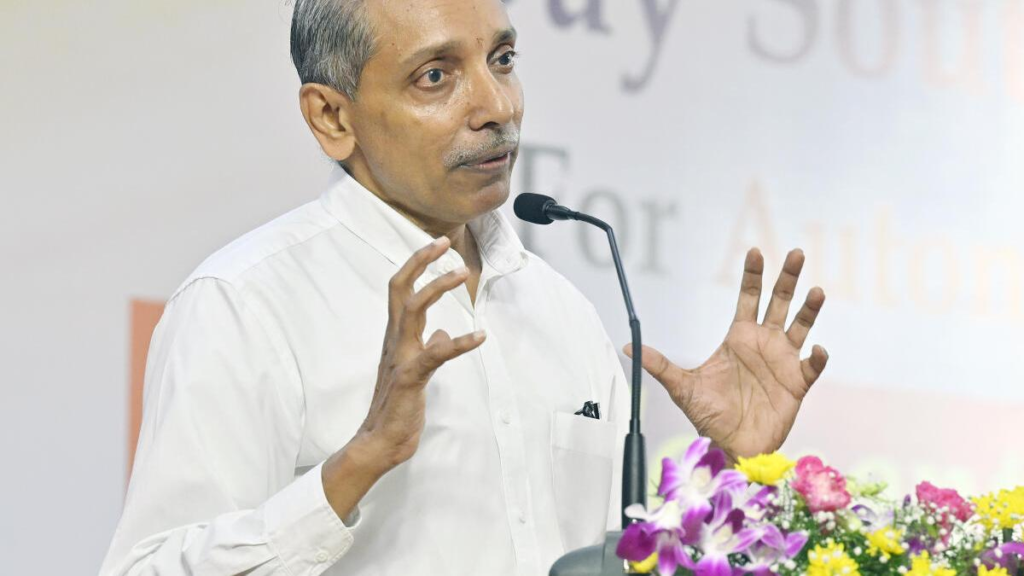UGC Chairman Jagadesh Kumar Mamidala, who assumed office in February 2022, has officially retired, leaving behind a legacy of transformative yet hotly debated reforms in India’s higher education landscape. During his tenure, Kumar spearheaded several policy shifts aligned with the National Education Policy (NEP) 2020, making a lasting impact on the regulatory and academic frameworks governing universities and colleges across the country.
A staunch advocate of academic freedom and structural flexibility, the UGC Chairman often reiterated the NEP’s guiding principle of interdisciplinary learning. “Let the students think freely, without any constraints of disciplinary boundaries,” he once stated. He emphasized that students should “critique everything they learn and disrupt the existing quo”, underscoring his belief in education as a tool for critical thinking rather than rote learning.
Among the most notable—and controversial—reforms under the UGC Chairman’s leadership was the abolition of the UGC-CARE list, a curated database of recommended academic journals established in 2018. In its place, the commission introduced a fresh set of guidelines for identifying credible journals based on eight criteria. This move received mixed responses. While some praised it for decentralizing academic publishing standards, others criticized the removal of an already established quality benchmark.
Another significant policy reform came in the form of the Draft UGC (Minimum Standards of Instructions in the Award of UG and PG Degrees) Regulations, 2024. These proposed sweeping changes to both undergraduate and postgraduate education in India. The reforms focused on flexible degree durations, multidisciplinary education, multiple entry and exit options, and the recognition of prior learning—all in line with NEP 2020. These measures aimed to make higher education more adaptable and globally relevant.

But can any UGC Chairman truly transform India’s education system without simultaneously addressing the structural deficiencies that continue to plague many universities and colleges across the country?
Yet, many of these proposals faced scrutiny. Critics questioned the logistical and financial feasibility of implementing such broad-based changes. Concerns about inadequate infrastructure, under-resourced institutions, and a lack of qualified faculty were frequently raised. Detractors argued that while the reforms may suit autonomous institutions, affiliated colleges, where a majority of students are enrolled, were ill-equipped to execute such changes without substantial policy support and funding.
A particularly contentious element of the UGC Chairman’s tenure was his backing of policy amendments that proposed to give state governors more authority in the appointment of vice-chancellors. This move was seen by several state governments as an attempt to encroach on their jurisdiction over public universities, leading to sharp opposition from political circles.
Despite the pushback, Kumar remained steadfast in his vision. Under his leadership, the UGC also introduced regulations to streamline the recognition of foreign degrees. The UGC (Recognition and Grant of Equivalence to Qualifications Obtained from Foreign Educational Institutions) Regulations, 2025, aimed to simplify and speed up the process for Indian students returning from international universities. The policy extended recognition to degrees earned from foreign campuses of global institutions, further strengthening India’s global academic integration.
Before becoming UGC Chairman, Jagadesh Kumar Mamidala was associated with Jawaharlal Nehru University (JNU), New Delhi, where he served from 2016 to 2022. Born in Mamidala village, Tipparthi mandal, Nalgonda district of Telangana, Kumar holds both a master’s and a PhD in electrical engineering from IIT Madras, followed by post-doctoral research at the University of Waterloo in Canada.
Throughout his academic and administrative career, the UGC Chairman remained focused on aligning India’s higher education ecosystem with evolving global standards. He sought to introduce policies that emphasized skill development, global mobility, and academic autonomy.
As he steps down, stakeholders in the education sector remain divided on his legacy. Supporters hail him as a reformer who wasn’t afraid to challenge the status quo, while critics caution that sweeping change must come with institutional readiness and inclusive policy frameworks.
With the chair of the UGC now vacant, the academic community watches closely to see who will carry forward—or reconsider—the bold path laid down by UGC Chairman Jagadesh Kumar.
ALSO READ
Pingback: DU TOPPER POST VIRAL